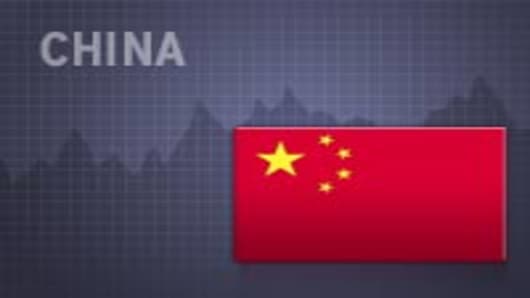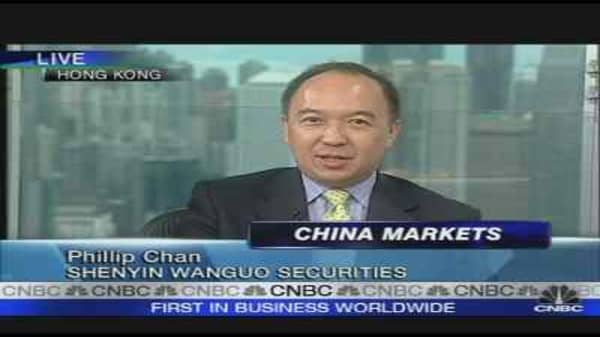Chinese annual inflation fell in May to 7.7 percent, the first major break in a year-long surge, as food price increases slowed and other products resisted rising global commodity costs, the government said on Thursday.
The drop, which contrasts with a rising trend across much of the globe, will provide some relief to policy makers who have declared high inflation their main economic challenge.
The consumer price index (CPI) showed food inflation had eased to 19.9 percent in the year to May from April's 22.1 percent pace, the national Bureau of Statistics said.
Non-food inflation nudged down to 1.7 percent from 1.8 percent even though figures on Wednesday showed factory gate prices rose at the fastest rate since late 2004.
"Lower food inflation is helpful to stabilizing inflation expectations. We expect lower CPI figures for the rest of this year. It could get as low as 6 percent," said Ben Simpfendorfer, a strategist at Royal Bank of Scotland in Hong Kong.
The report confirmed preliminary data disclosed to Reuters on Tuesday and was below forecasts of a 7.9 percent rise.
Beijing is not alone in its struggle with inflation. From Europe to the Middle East and much of Asia, governments are battling to tame the fastest price increases in years.
China provides most of its own food, which makes up a third of the consumer price basket, so as it recovers from a series of domestic farming setbacks it has largely been able to insulate Chinese families from fast-climbing global food prices.
But rapid industrialization means China is less able to escape the impact of rising raw material prices, and some economists fear the pipeline pressure evident in the producer price index could feed into consumer prices over the year.
"The concern is that record factory-gate prices will pass through to consumer prices. So I think the decline in CPI in coming months will be slow and gradual," said Shi Lei, chief economist at Tianxiang Investment Consulting in Beijing.
Past Its Peak?
Some economists trace inflation not to high commodity prices but to loose monetary policy as the central bank struggles to mop up cash pouring into China from its huge trade surplus.
Exports grew much faster than expected in May as emerging economies took up the slack left by slowing U.S. demand, leaving China with a trade surplus of $20.2 billion.
If the central bank can keep money supply growth from rebounding, CPI inflation will begin to trend down towards 5-6 percent later this year, Goldman Sachs said in a note to clients.
"On the other hand, any rebound in money supply growth will lead us to re-assess our tentative conclusion that inflation may have peaked in China," economists Yu Song and Hong Liang said.
Inflation climbed as high as 8.7 percent in February and, though it is now ebbing, officials acknowledge the government's full-year target of 4.8 percent is probably beyond reach.
That is especially the case as Beijing is under increasing pressure to raise state-set prices of diesel and gasoline as shortages spread across the country.
Currently they are well below international markets, so if the two are brought in line it could push the CPI up again by around 2 percentage points.
"Prices are set to rise -- as we all know, power and oil product prices are currently kept artificially low," said Lin Songli, an analyst with Guosen Securities in Beijing.




